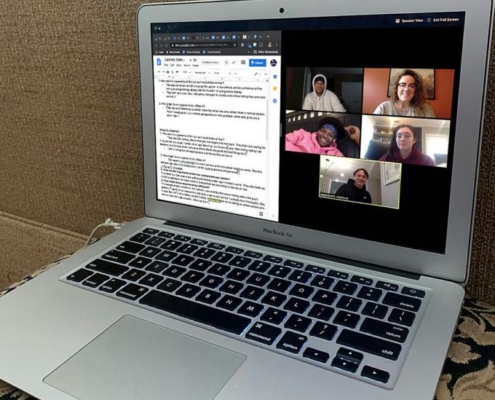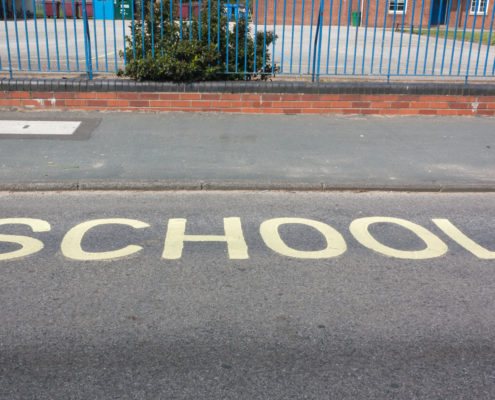
MBTAAnalysis: A look inside the MBTA
0 Comments
/
The MBTA shuttles over a million passengers a day around Greater…
 https://pioneerinstitute.org/wp-content/uploads/CloseupClock-1.jpg
739
1244
Mary Connaughton
https://pioneerinstitute.org/wp-content/uploads/logo_440x96.png
Mary Connaughton2017-02-20 12:34:192017-02-21 09:47:58The Clock is Ticking…….
https://pioneerinstitute.org/wp-content/uploads/CloseupClock-1.jpg
739
1244
Mary Connaughton
https://pioneerinstitute.org/wp-content/uploads/logo_440x96.png
Mary Connaughton2017-02-20 12:34:192017-02-21 09:47:58The Clock is Ticking…….
Lincoln’s Legacy for Our Time: A Transcript of Remarks Delivered by Civil War Historian James McPherson
When Abraham Lincoln breathed his last at 7:22 a.m. on April 15, 1865, Secretary of War Edwin M. Stanton intoned: "Now he belongs to the ages."

Online Learning 101: Starting a Virtual School And Its Challenges
Since the late 1990s, when the first fulltime virtual schools appeared, educators, IT professionals and government officials have been working through the practical issues involving technology, personnel, administration and funding. Around the country adoption of online learning has occurred in varying degrees. States such as Florida and California have been leaders, while elsewhere specific school districts have aggressively embraced the new model.

Preserving Charter School Autonomy
Three years ago, with great incentive from the federal government, the Massachusetts state legislature raised the cap on charter schools in some underperforming districts across the Commonwealth. The move was welcomed by parents, students, and other concerned citizens in those communities—communities where charters have provided a high quality alternative to the traditional public system.

Hands-On Achievement: Why Massachusetts Vocational Technical Schools Have Low Dropout Rates
More than one million students drop out of high school in the United States each year, setting them on courses of lost income, diminished health, and increased odds of incarceration. Collectively, their decision costs the nation hundreds of billions of dollars in lost revenue, lower economic activity and increased need for social services.

The Rise and Fall of the Study of American History in Massachusetts
Across Massachusetts public schools, history teachers believe that the study of U.S. history through the grades is in jeopardy if not in a poor state altogether.1 To judge from recent national tests, students are graduating from the state’s high schools as well as from high schools across the country with little understanding of our nation’s history, its founding principles, its major institutions, and the central figures and events that shaped who we are as a people.

“And You Shall Teach Them Diligently”: The History and Status of Jewish Day Schools in Massachusetts
Beginning in the late 1930s, the confluence of a number of social, ideological, religious, and demographic factors led to the rise of Orthodox day schools in Boston and elsewhere. In the ensuing decades, the Jewish community migrated to the Boston suburbs and even further to the west.

Enrollment Trends in Massachusetts: An Update
Since 2003, enrollment in public schools in Massachusetts has fallen by 35,000 students, or 4%. The decline has occurred even while enrollment in the rest of the country has increased. The early years of this enrollment decline were documented in a Pioneer Institute report in 2008.

Transcript: Why Huck Finn Matters: Classic Literature in Schooling
I have heard, read, or seen these statements within the last year. What fascinated and concerned me then and continues to fascinate and concern me today is the level, the preponderance, and the consistency of this vitriol. I have come to a singular conclusion: race continues to be a primary way many people construct, deconstruct, and understand meaning in our country today. Race and the role it plays in America's history continue to impact every individual, everyday.

Testimony to the Utah 2012 Education Interim Committee
Testimony to the Utah 2012 Education Interim Committee in August 2012.

Pioneer Institute Report on History in Schools
"Pioneer Institute Report on History in Schools" was presented in 2012.

A Changing Bureaucracy: The History of the Massachusetts Department of Elementary and Secondary Education
The first part of this report looks closely at the background, structure, and function of the DESE in an attempt to understand how the agency has operated, how it currently operates, and what challenges, if any, the structure and operation of DESE pose for its ability to effectively exercise its increased authority. The second part recounts the recent history of the Department, especially its role in implementing the first wave of education reform, which came in the form of the 1993 Massachusetts Education Reform Act. In doing so, this work uncovers some of DESE's strengths and weaknesses in an attempt to highlight potential obstacles to successfully implementing the second wave of reform.
 https://pioneerinstitute.org/wp-content/uploads/credit-card-3.png
512
1024
Pioneer Institute
https://pioneerinstitute.org/wp-content/uploads/logo_440x96.png
Pioneer Institute2012-04-24 15:18:232020-08-02 15:25:54School Choice Survey
https://pioneerinstitute.org/wp-content/uploads/credit-card-3.png
512
1024
Pioneer Institute
https://pioneerinstitute.org/wp-content/uploads/logo_440x96.png
Pioneer Institute2012-04-24 15:18:232020-08-02 15:25:54School Choice Survey
Urban and Rural Poverty and Student Achievement in Massachusetts
This paper explores the extent and distribution of poverty in Massachusetts's schools and then examines the performance of low-income-students in urban and rural areas.

Rhode Island Jewish Day Schools and Scholarship Tax Credits
This is the third in a series of Pioneer Institute policy briefs on scholarship tax credit programs. The first, in 2007, was a groundbreaking study of scholarship tax credit programs in Florida, Minnesota, and Arizona. The second report, published in 2010, built on that research in assessing Rhode Island's Corporate Scholarship Tax Credit (CSTC) program, which became law in 2007. That study provided a review of the CSTC program's legislative history, program design and impact and offered recommendations to policymakers based on Rhode Island's experience.

Four Models of Catholic Schooling in Massachusetts
Thought leaders in education, especially in Massachusetts, rarely acknowledge the precedent that Catholic education sets and the model that it has long provided in offering high quality educational options to students of all backgrounds. This could be because many Catholic schools serve poor and minority students with great success, thus revealing the comparatively low quality of too many public schools that do not.

Regulating Virtual Schools
This paper discusses the issues surrounding the regulating of full-time online schools and draws on research conducted in Massachusetts and other states. It includes commentary from educators, academics, government officials and non-profit researchers. It is presented at a time when still more than one-third of the states do not offer a full-time virtual school option and there are no national policies for their oversight.

One-Page Primer on Common Core: Legality
Despite three (3) federal laws that prohibit the federal government from directing, supervising or controlling elementary and secondary school curricula, programs of instruction and instructional materials, the U.S. Department of Education (USDOE) has placed the nation on the road to a national curriculum.

One-Page Primer on Common Core: Cost
Significant new costs are projected in three key areas of standards-based reform: assessment, professional development, and textbooks and instructional materials. In addition, states and local communities are expected to face substantial new expenditures for technology infrastructure and support.

Summary: National Cost of Aligning States and Localities to the Common Core Standards
All but five (5) states have committed to adopting the Common Core State Standards (CCSS) in English language arts and mathematics and are participating in one of the federally-sponsored consortia developing aligned assessments (see Figure I ). Few of the participants, however, have carefully analyzed the costs involved.

The Serpent in Finland’s Garden of Equity
About four decades ago, Finland introduced major reforms to grades 1-12 and teacher education, with noteworthy results. In 1970, less than 10% of its students graduated from high school. By 2010, most high school-age students attended high school and most of these students graduated.

National Cost of Aligning States and Localities to the Common Core Standards
It is the purpose of this study to stimulate an informed policy dialogue about the likely costs of implementing the Common Core standards. The nationwide calculations are intended to encourage similar, more detailed efforts in individual states that take into account additional local considerations.

The Road to a National Curriculum
Kent D. Talbert is a co-founder of Talbert & Eitel, PLLC. His practice includes legal services to colleges and universities, accrediting agencies, the K-12 education sector, charter school organizations, professional and trade organizations, and others in the education sector. Prior to establishing the firm, he served as General Counsel of the U.S. Department of Education from 2006-2009, where he acted as the chief legal adviser to Secretary of Education Margaret Spellings.

Virtual Schools, Actual Learning
This paper is intended to provide background information for those exploring MI-time virtual schools and online learning. It draws on interviews with education officials, virtual school directors, district superintendents, researchers and non-profit executives, as well as data generated by previous studies on the topic.

METCO Merits More
Massachusetts' METCO program (Metropolitan Council for Educational Opportunity) enables about 3,300 students who live in Boston and Springfield to attend opportunity-rich suburban schools. Since the vast majority of the students in METCO are either African American or Latino and most suburban districts remain overwhelmingly white, METCO fulfills two goals: it creates a degree of racial and ethnic diversity and provides students who'd otherwise attend challenged school districts the opportunity to attend schools with reputations for rigor and excellence.

Houses of Learning
This paper is intended to act as a guide for charter school founders and directors to accomplish what has been called the "devilishly difficult" task of financing a charter school, finding a location, assembling a development team and building the facility, among other requirements. It draws on interviews with charter school administrators, trustees and policy leaders in Massachusetts and other states, as well as data generated by previous studies on the topic.

Testimony to the Joint Education Committee
"Testimony to the Joint Education Committee" was provided in May 2011.

The Anti-Aid Amendments and School Choice
"The Anti-Aid Amendments and School Choice" was presented by Michael Wolf in 2011.

Be Not Afraid: A History of Catholic Schooling in Massachusetts
The overall aim of this policy paper is not only to reveal the urgency of the problem in Catholic education; it also strives to explain why Catholic schools in Massachusetts and in the city of Boston should be considered essential partners in education. It does so by presenting academic data on the successes of Catholic schools in the Archdiocese of Boston and the state and nationwide; it makes comparisons to surrounding public school systems, such as the Boston. Finally, this paper outlines current efforts on the part of the Catholic community and the Archdiocese of Boston especially, to reverse the discouraging trend of Catholic school closures in Boston and beyond. The report concludes by providing recommendations for the perpetuation of Catholic schools in Massachusetts.

Contracting for Performance
The results of this study show that factory model contracts are more likely to be found in the Commonwealth's lowest-performing school districts, many of which serve disproportionate numbers of poor and minority students. This policy brief concludes with six recommendations for actions that school districts can take to ensure that teacher collective bargaining contracts in the state of Massachusetts become better aligned with the professional model.

Education Tax Credits – A Review of the Rhode Island Program and Assessment of Possibilities in Massachusetts
The first part of this brief presents a detailed description of Rhode Island's Corporate Scholarship Tax Credit (CSTC) program, summarizing the key institutional features of the program. The second part of the brief extracts lessons learned from Rhode Island's tax credit program and assesses the possibility of the adoption of a similar tax credit funded scholarship program in Massachusetts.
